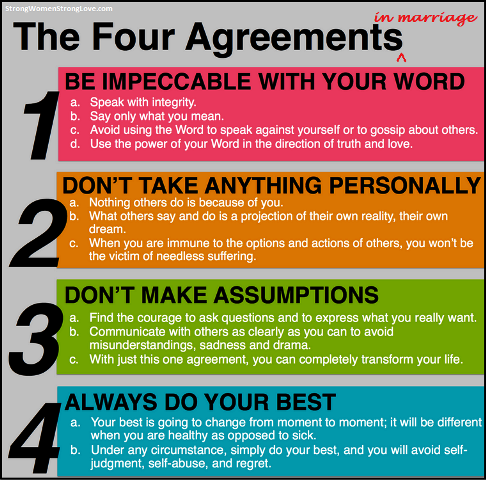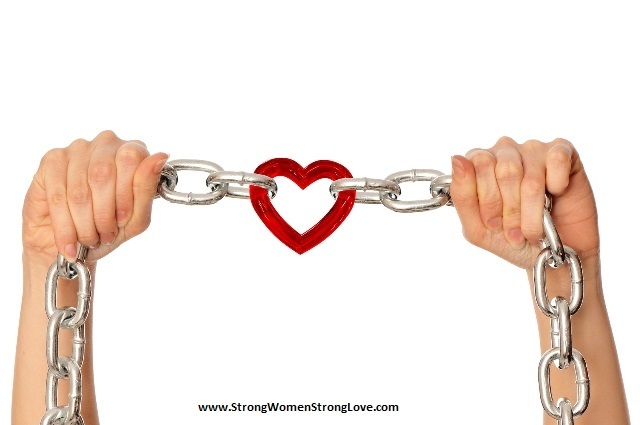by Strong Women Strong Love | Aug 21, 2020 | Podcast Interviews |
I had the distinct pleasure of being interviewed by David Waranch of the Authentic Dad podcast. Here’s the introduction from his site and a link to the podcast below.
August 20, 2020
Welcome to the Authentic Dad Podcast! I’m David Waranch and I coach dads on having a greater impact in the world, living on their own terms, flourishing in their relationships.
Today, I’m joined by Dr. Poonam Sharma. Dr. Sharma is an experienced psychologist in San Antonio. She’s the author of Strong Women, Strong Love: The Missing Manual for the Modern Marriage.
I wanted to talk to Dr. Sharma because I found her book very helpful and practical in navigating marriage and relationships in the modern world. I really enjoy her down to earth and practical style of writing.
We talk about marital expectations, the 5 human needs, gender roles, and much more.
https://furthurcoach.podbean.com/e/loneliness-expectations-and-other-marriage-stuff/
by Strong Women Strong Love | Feb 3, 2019 | Books, Principal Priorities |

The personal development classic The Four Agreements by Don Miguel Ruiz might not be your idea of romantic reading before Valentine’s Day. But I’ve been revisiting this book lately and thinking about what each of the agreements can tell us about how to show up in marriage.
- Be Impeccable With Your Word
Words matter, so choose them carefully. Words can tear down your relationship when you use them to criticize, complain and belittle. And they can build your bond when you express love and appreciation.
Be especially careful about contempt. Speaking in a mean and disrespectful way with your spouse is the behavior most linked to eventual divorce. Remember that being truthful when you speak is important, but don’t be brutally honest because your words can still hurt.
So as Ruiz says, “Use the power of your word in the direction of truth and love.”
- Don’t Take Anything Personally
Ruiz writes: “Don’t take anything personally. Nothing others do is because of you. What others say and do is a projection of their own reality. Their own dream.” And that includes your husband. Like you, he is a separate person with his own perspective on life, shaped by his own experience. The more you believe that being married means you must see everything the same way, you more you will find yourself having conflict with your husband. Take time to consider the different ways the two of you approach life. The more you understand how your husband views the world and why, the less you will feel that what he does is directed at you.
- Don’t Make Assumptions
“Communicate with others as clearly as you can to avoid misunderstandings, sadness and drama,” Ruiz writes in The Four Agreements. This is a huge deal in marriage. Don’t assume that your husband knows what you need and want. He came into marriage with his own set of expectations and assumptions, and they may be very different from the ones you grew up with.
Likewise, don’t assume that you know what’s going on with him or why he engages in a certain behavior. It’s more courageous and effective to get curious about him and ask questions that can bring you closer together.
- Always Do Your Best
“Your best is going to change from moment to moment; it will be different when you are healthy as opposed to sick,” Ruiz says “Under any circumstance, simply do your best, and you will avoid self-judgment, self-abuse and regret.”
These are wise words for the different seasons of marriage. To expand on Ruiz’s words, doing your best will look different for newlyweds than it will for new parents. Sometimes it means being there for your partner in a crisis; sometimes it means celebrating him when things are going well. And sometimes it means allowing him to give more when you can’t. It all comes down to staying in tune with each other and showing up to the best of your ability.
If it’s been a few years since you’ve thought about “The Four Agreements,” Valentine’s Day is a great time to reread your copy and consider its wisdom in the context of your marriage. And if you’ve never read this book, I highly recommend it. When you’re picking up a copy, consider adding my own book, Strong Women, Strong Love, to your purchase. In it, you’ll find many more insights on marriage like the ones in this article.
by Strong Women Strong Love | Oct 13, 2014 | Persistent Pressures, Understanding Men |

As Halloween gets closer and we’re thinking about scary stuff, I want to let you in on your husband’s secret fears.
I’m not talking about zombies, vampires or other horror movie creatures. Or even everyday creepy-crawlies like spiders.
Here’s the twist: Some of the things that frighten your husband the most might be things you are actually doing.
Of course, you’re not trying to be scary. And you probably don’t see your husband expressing these fears. Guys get conditioned to appear strong and hide any sign of fear or vulnerability. But that doesn’t mean they’re not playing out in other ways in your marriage — for example, if your husband starts to seem withdrawn or distant.
Let’s talk a little more about some of men’s most common fears in relationships and how you can help dispel them.
1. He’s afraid he can’t make you happy.
Men feel great when they can make their wives happy; it’s often how they measure their success as a husband. If your guy is making an effort to please you, but you tend to complain, criticize, or act lukewarm, don’t be surprised if his motivation eventually fizzles. If he sees you constantly down in the dumps and doesn’t know how he can change that, he may end up thinking he’s simply the wrong man for you, and then back off.
How to calm this fear: Assume that your husband cares about your happiness. When he does something to lift you up, let him know it! If he’s making an effort and simply missing the mark, be kind and clue him in on what would work better. There are some romantic but misguided, notions floating around in our culture that if he’s “the one,” he’ll “just know” how to make you happy. He may be fabulous, but I doubt he can read your mind! So, go ahead and tell him what you’d like to do for Valentine’s Day, what helps when you’re upset, even what feels good in bed. He’ll be grateful. And amid the daily stresses of life, don’t forget to flash him a smile now and then.
2. He’s scared that he’s useless. We women have so many more options available to us in our lives. Some of us are the primary breadwinners of the family. Others are choosing to be single parents. Marriage and involvement with men are becoming real choices. It’s not unusual to hear even married women openly say that they “don’t need” a man. As you can imagine, that attitude can do a number on a guy’s self-esteem. Men are still being judged by their ability to take care of the women in their lives. So, it sounds corny, but your husband really wants to be your hero sometime, to have you look you look at him with love and admiration because he brings some significant value to your life.
How to calm this fear: There is no need to suppress your competence or independence as a woman. However, please do remember to create room for your husband to feel effective too. Ask for his help, not because you’re a damsel in distress, but because no one should have to take care of everything by themselves! Let him know that he is of value in the relationship by noticing and appreciating what he provides, whether it’s financial support, practical help, or a shoulder to lean on: “Thanks for cooking dinner today. It really took some pressure off me.” Remember that a healthy relationship has room for both of you to need and depend on each other.
3. He’s terrified of being humiliated. Vulnerability is not something most men allow themselves to experience frequently. A central code of manhood is that a real man must appear strong at all times. You may want your husband to lower his defenses with you, but this may be really scary for him. After all, there is a real risk that if he opens up, you could hurt him.
How to calm this fear: Be extremely disciplined when your husband is exposing his softer side, recognizing that you have tremendous power to hurt him. Men are a lot more sensitive to criticism, disappointment, and rejection than you might imagine. Never insinuate that he is weak, especially when he is emotionally exposed. Otherwise, he may close the door to emotional intimacy permanently. Be respectful, kind, and affirming when your husband takes the risk to let you see parts of himself he seldom shares with anyone else. And then, watch the love and trust grow!
4. He’s worried that he’s not important to you. After being married for a while, you may start to take your husband for granted. Because you assume he’s not going anywhere, he may fall lower down on your priority list and he may truly get less attention. Men worry that they’ll fall off the radar for you after you have kids. And the thing is, they’re often right. I see this happen frequently in relationships. When you understand that for a man, their spouse is often one of very few people with whom he is emotionally close, it’s easier to understand why he may be upset with having less of your time and attention.
How to calm this fear: Make time for each other. In the early days of your relationship, it was easy to feel close. That love and passion don’t have to die now that you’re an established couple with a more demanding schedule. You just have to deliberately commit to making your relationship a clear priority. Remember that strengthening your bond is the best thing you can do for your family. So rather than just saying, “Of course you’re important to me,” go ahead and show it by scheduling some time just for the two of you regularly.
5. He fears being smothered. The opposite extreme — when you don’t have a life outside of your relationship — is pretty scary to men too. No one wants to be the center of another person’s world. It’s exhausting and way too intense!
How to calm this fear: Give your guy a little more space by focusing on yourself and the other important things in your life more often. It sounds counterintuitive, but when you both take time to cultivate yourselves, it will draw you closer together.
Remember, it’s never sustainable for either of you to be driven by fear in your relationship. Want to learn more about your husband’s perspective and what’s behind his actions? Check out my book Strong Women, Strong Love. When you subscribe to the mailing list, you’ll get incredibly useful insights into the male mind with the free report: “10 Easy Ways to Get Him to Listen.”
by Strong Women Strong Love | Mar 17, 2014 | Persistent Pressures |
 Are you stressed out? You have plenty of company.
Are you stressed out? You have plenty of company.
Although we’re wired for connection, stability and operating within certain limits, in recent decades, the pressure to ignore this biological reality has increased. As a result, stress is running rampant many areas of our lives, even our marriages. Researchers Dr. Lisa Neff and Dr. Benjamin Karney warn that relationships exposed to excessive stress have a higher chance of failing, so it’s important to get a handle on stress.
Here are some signs of stress in your marriage:
- Every little thing sets you off. Neff and Karney’s research found that chronically-stressed couples tend to be much more reactive to the normal ups and downs of their relationships. This finding was even stronger for women. What this means is that you may, for example, respond a little too defensively to the “tone” in your partner’s voice. And those dirty socks on the floor? They may just push you right over the edge!
- You’re focused on the negative. Studies show that under heavy stress, couples have trouble seeing the positives in their relationship and usually magnify anything negative that is happening. So, even though your husband stopped by the store to pick up a gallon of milk like you asked him to, all you can think of is that he got home late.
- You’re a control freak. When stressed, many of us get more rigid and judgmental. In a momentary desire to feel some sense of control, we may lose touch with the spirit of kindness and flexibility that nourishes a marriage.
- You feel bad physically. Does any of this sound familiar? You pick up every bug going around. Your jaws or shoulders are always clenched. You have a constant headache or churning stomach. You notice your heart racing. These are all ways that stress can manifest itself in our bodies. Health problems like these drain our energy, leaving us less to give to our marriages.
- You’re emotionally worn down. Chronic stress can also break down your emotional health, sometimes causing feelings of anxiety, depression or constant agitation. If you are struggling emotionally, it’s hard to be a supportive, compassionate partner in your marriage.
- You don’t seem like yourself. Does it seem like your relationship used to be easier? Unfortunately, because of the way the brain works, even if you have excellent relationship and communication skills, it is very hard to draw on those skills when overwhelmed. Just like a drowning person, when you are super stressed, all you can think of is survival, not how you’re going to phrase something so it doesn’t hurt your husband’s feelings.
It’s important to be aware of the ways stress may be hurting your relationship. In our next blog, we’ll look at how to relieve this stress, and make your marriage healthier.





